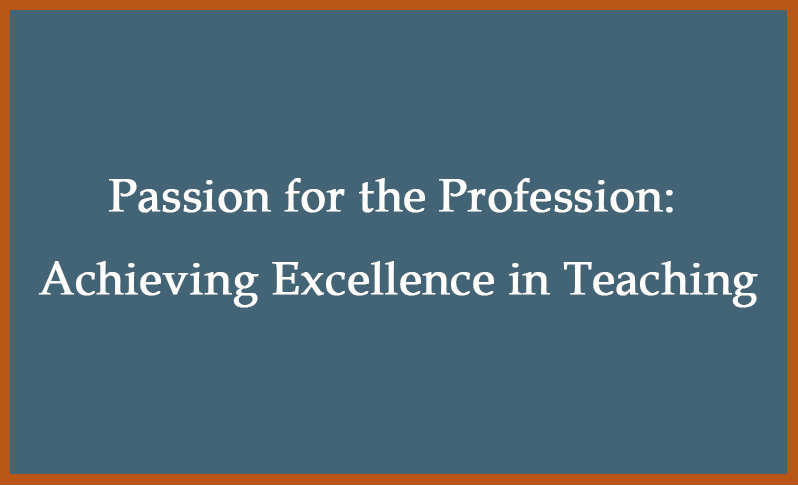As the general managers prepare for that annual athletic rite of passage known as the National Football League Draft, we have noticed that they are starting to pay more attention to something other than the players’ heights, weights, dead lifts, and 40-yard-dash times. Even the NFL is beginning to embrace the rubric of disposition, believing that in pre-draft interviews the college players with the greatest chance of becoming All-Pros are those who display a passion for their vocation. Without a fire in their gut, even professional athletes will have trouble excelling, it seems.
This week’s Bloomberg Businessweek (April 27-May 3, 2015) contains a full-page advertisement for Liberty Mutual. Above a picture of a restaurant owner in bold red and blue letters is the tagline “You have a passion for your business. We have a passion for protecting it.” Passion is seen as necessary for running two businesses.
In a recent issue of The Chronicle of Higher Education (3 April 2015), “The 4 Properties of Powerful Teachers” (A31-2) Rob Jenkins lists a tetralogy of pedagogical traits—“four qualities that all powerful teachers possess”: personality, presence, preparation, and passion. Jenkins concludes that “Of all the qualities that characterize great teachers, this [passion] is the most important, by far. . . . Passion, or love, manifests itself in the classroom in two ways: love for students and love for your subject matter.” (Tweet this quote.)
In Achieving Excellence in Teaching (Stillwater: New Forums, 2014), we go one step farther: “For you to achieve excellence in teaching, your passion must be a tri-fold choice, encompassing the subject, the student, and the very act of teaching” (25). Passion is inspirational. If you love what you are doing, it rubs off on your students. Conversely, if your passion omits one of these three areas, you will achieve less.
What do we mean by passion? “Passion in teaching involves being deeply stirred by a particular area of interest, investing time and energy in its pursuit, and having a strong desire to help others learn about the subject area” (27). Interestingly, despite a societal recognition of the role of passion in advertising, business, sport, and teaching, research into recent 21st-Century teachers confirms they regard teaching as simply a 9-5 job, something you merely punch the clock on. What is going to happen to this generation of students taught with such a vocational mentality? Are they going to be inspired, or are they going to be more trained than educated—future clock-punchers?
Jenkins warns about the dangers of burn-out and of teachers who regale their colleagues with tales of student ineptitude and then wonder why they are not popular. Passion is not a constant. Faculty often enter the profession with this three-fold love, but lose it along the way. We have found that one way to maintain the passion level is to keep on trying new things. Create new courses or new approaches to old courses. Over the course of our careers we invented courses on mystery stories, comic books, and pop culture in general. We came into the profession as teachers of traditional lit, but gradually found another outlet in creative writing. We reinvigorated our department’s course offerings so that at one time 25% of all English majors were in creative writing. We even began a low-residency MFA program in creative writing. And then we switched gears again and became professional developers in the University’s Teaching & Learning Center. Rusty began with one foot in the Department of English & Theatre and the other in the Noel Studio for Academic Creativity, where he serves as director. But that wasn’t enough, so the three of us devised a minor in Applied Creative Thinking, creating all the core courses and writing two textbooks.
Every year in New Faculty Orientation we point out that if you don’t have that tripartite passion, you’re probably in the wrong profession. And every year just as when we were kids and rode our bikes into unexplored territories, we find something new to do—a new course, a new book or article, a new creation like Scholarship Week or the Kentucky Pedagogicon.
And our passion is constantly renewed.
Author
 Charlie Sweet is currently Co-Director of the Teaching & Learning Center (2007+) at Eastern Kentucky University. Before going over to the dark side of administration, for 37 years he taught American Lit and Creative Writing in EKU’s Department of English & Theatre, where he also served as chair (2003-2006). Collabo-writing with Hal Blythe, he has published well over 1000 items, including 15 books; of his 11 books with New Forums. Meet Charlie.
Charlie Sweet is currently Co-Director of the Teaching & Learning Center (2007+) at Eastern Kentucky University. Before going over to the dark side of administration, for 37 years he taught American Lit and Creative Writing in EKU’s Department of English & Theatre, where he also served as chair (2003-2006). Collabo-writing with Hal Blythe, he has published well over 1000 items, including 15 books; of his 11 books with New Forums. Meet Charlie.



